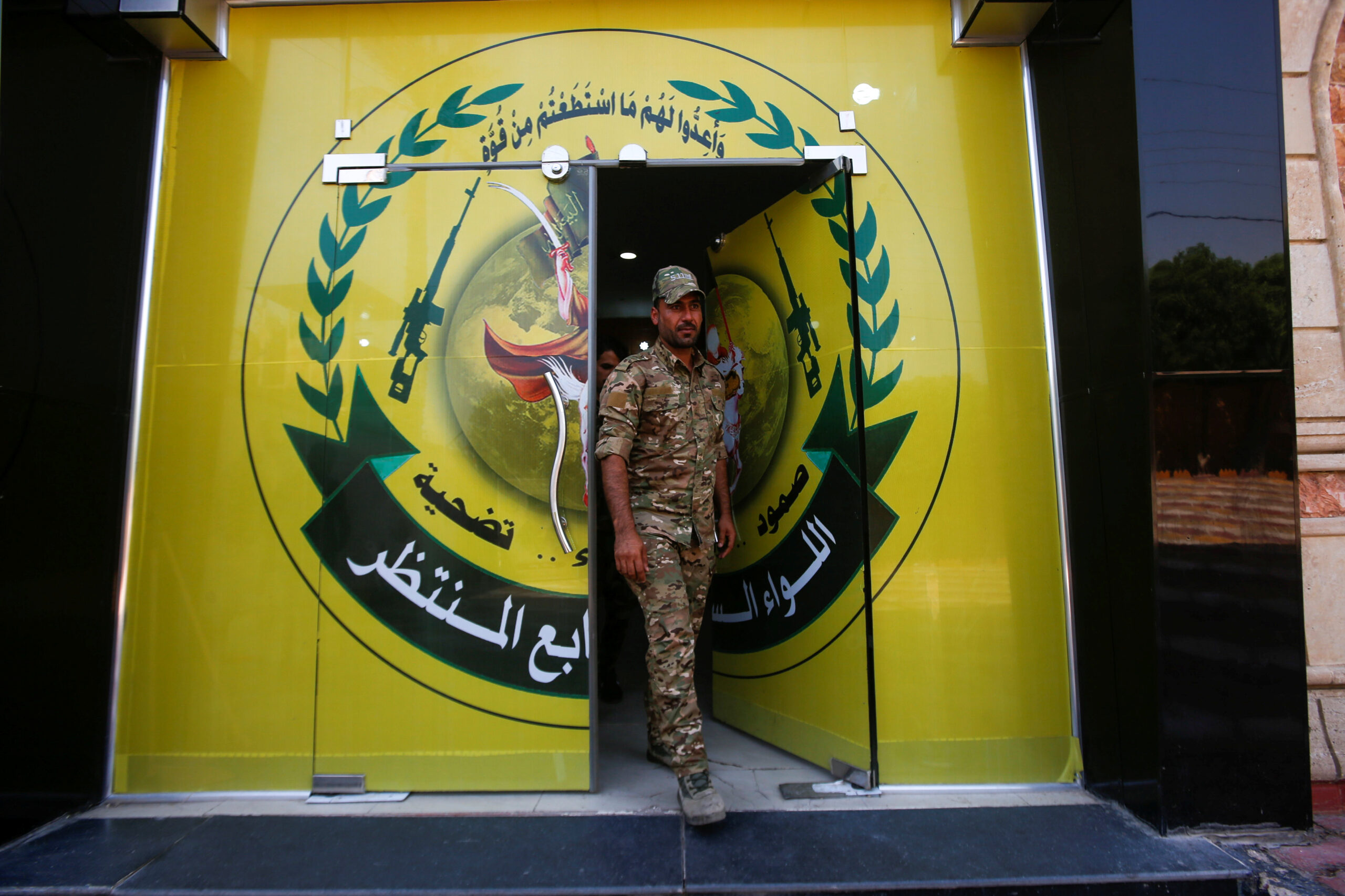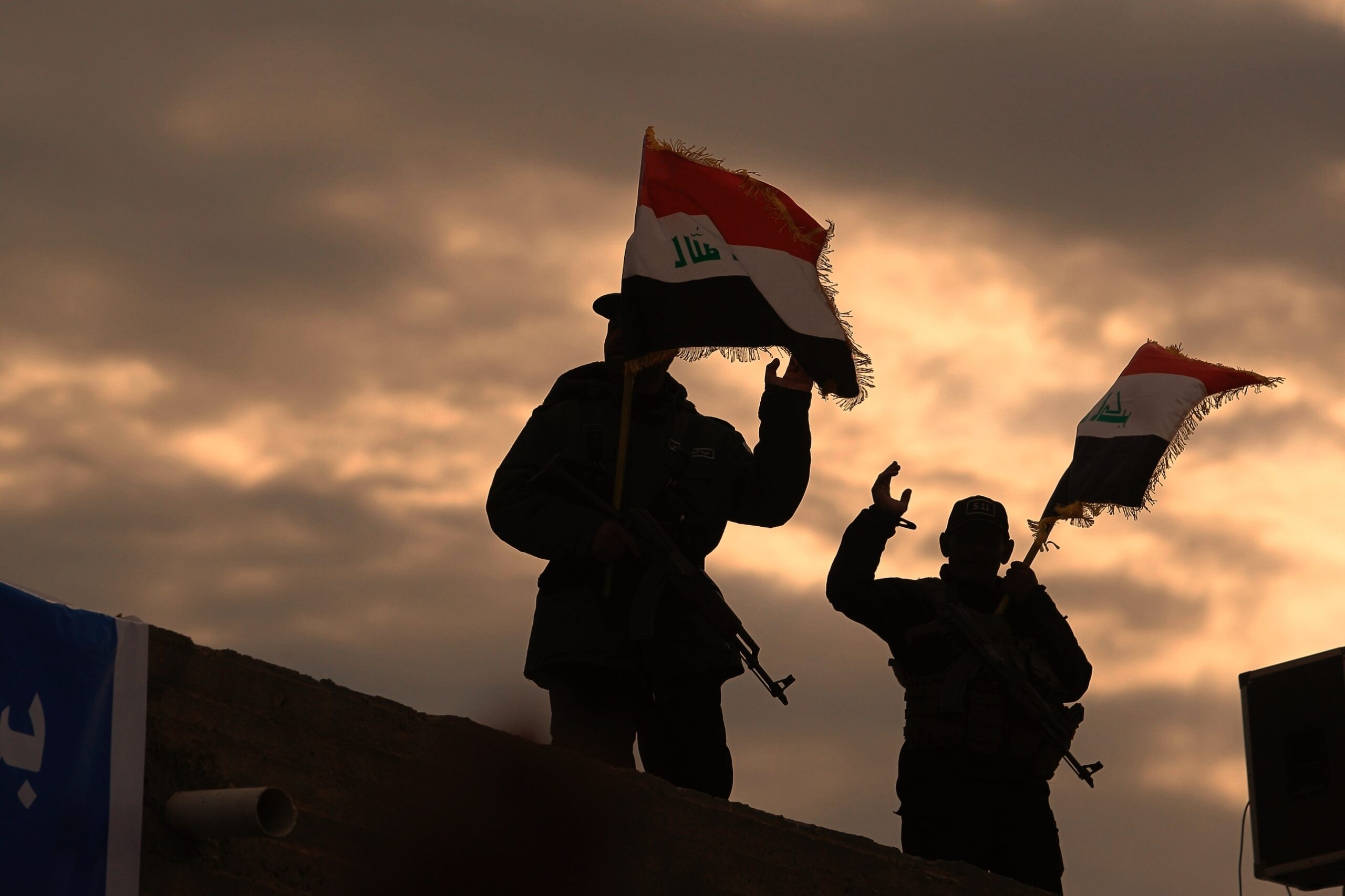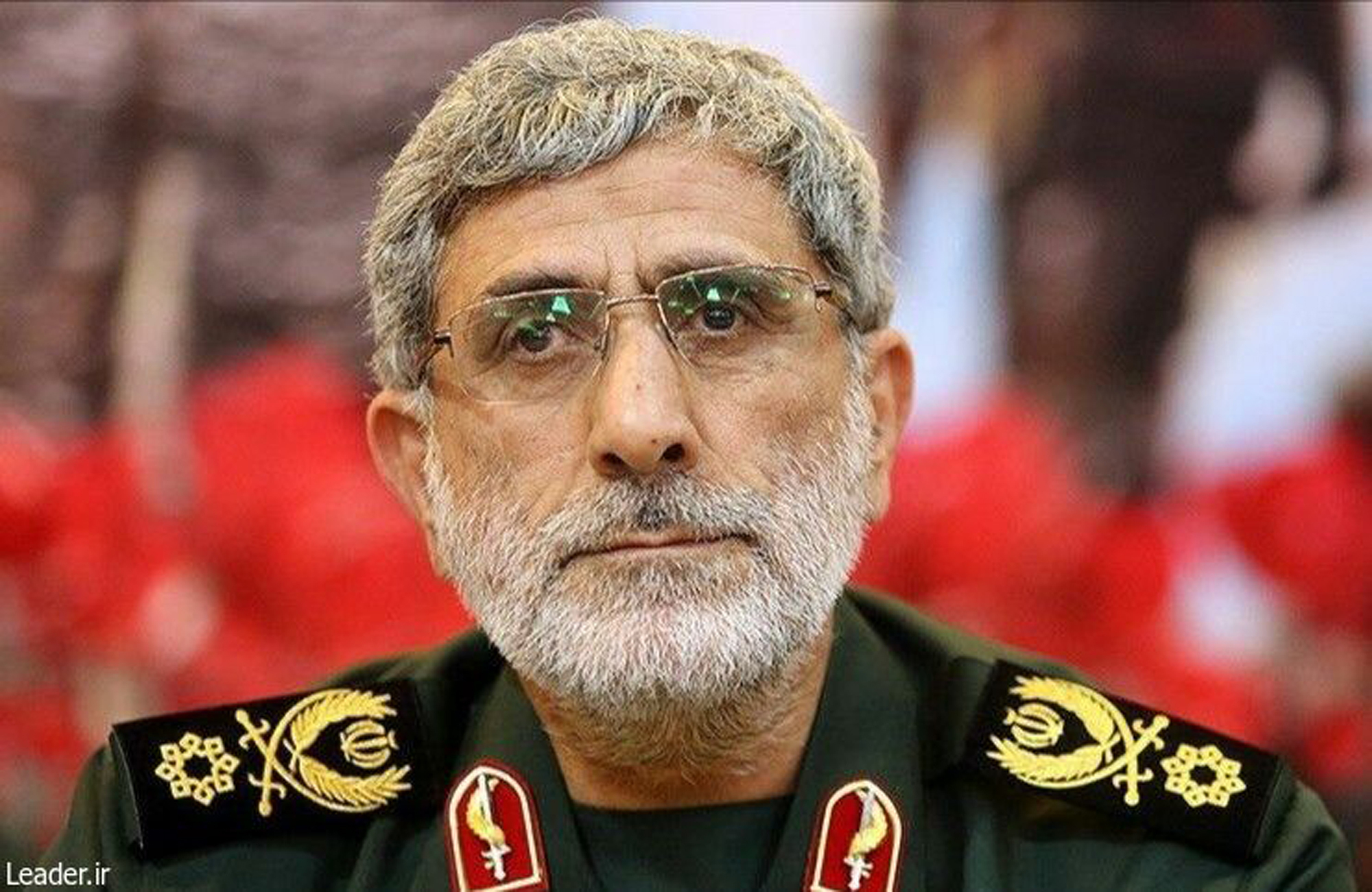Succession Crisis in Iraq’s Popular Mobilization Forces
While it took the Quds Force of the Islamic Revolutionary Guard Corps less than 24 hours to replace Major General Qassim Suleimani, Iraq's Popular Mobilization Forces is suffering more from its leadership succession woes.

Ever since the January 3 killing of Major General Qassim Suleimani, commander of the Quds Force of the Islamic Revolutionary Guard Corps, and Jamal Jafar Muhammad Ali al-Ibrahim, also known as Abu Mahdi al-Muhandis, deputy chairman and de facto leader of Iraq’s Popular Mobilization Forces, both organizations have engaged in a hectic effort to fill the leadership void. While it took the IRGC’s Quds Force less than 24 hours to replace Suleimani, the more heterogeneous and less institutionalized Iraqi PMF is suffering more from the sudden decapitation, as demonstrated by the organization’s leadership succession woes. In particular, rivalry within the pro-Iran faction of the PMF and divisions between the pro-Iran faction and militias loyal to Iraq’s Grand Ayatollah Ali al-Sistani are complicating leadership succession.
In theory, the killing of Muhandis should not constitute a significant challenge to the PMF. Article 78 of the Iraqi constitution empowers the prime minister as commander-in-chief of the armed forces, including the PMF. Nominally, Faleh al-Fayyad, the Iraqi national security advisor, is chairman of the PMF. But in practice, the deputy is in charge, and the killing of Muhandis created a vacuum that the competing factions within the organization have tried to fill since January.
By mid-February, it was increasingly apparent that two main factions answering to two different Shia religious authorities were engaged in the struggle for control over the PMF. There were those close to Grand Ayatollah Sistani, on the one hand, and others answering to the Quds Force and – ultimately – Iran’s Supreme Leader Ayatollah Ali Khamenei, on the other. Still worse from Tehran’s perspective, there also appears to have been fierce rivalry among pro-Iran factions of the PMF.
The Quds Force appears to have won the first round of that struggle. On February 20, the Lebanese al-Mayadeen network confirmed Abu Fadak al-Mohammedawi, a former commander of the pro-Iran militia Kataib Hezbollah, was appointed PMF deputy. Iranian government-controlled media welcomed the news by releasing photos of Abu Fadak in the company of the late Suleimani. Other sources disclosed that a committee of pro-Iran militia leaders had elected Abu Fadak. The committee was reportedly composed of Abu Ali al-Basri, assistant to the PMF deputy; Abu Muntazar al-Husseini, veteran Badr Corps commander; Abu Iman al-Bahali, PMF intelligence chief and originally a member of Kataib Hezbollah; Abu Ala al-Walai of the Kataib Sayyid al-Shuhada militia; Laith al-Khazali of the Asaib Ahl al-Haq militia; and Ahmed al-Asadi of the Kataib Jund al-Imam militia.
A later report further clarified there were three candidates for the position of PMF deputy: Abu Fadak, Basri, and Bahali. Rather than being first among equals, Abu Fadak was a compromise candidate among the pro-Iran faction within the PMF.
PMF militias loyal to Grand Ayatollah Sistani were not a part of the committee, and after the “election” of Abu Fadak, the Ali al-Akbar Brigade, which guards the Imam Hussein shrine in Karbala; Imam Ali Combat Division, which guards the Imam Ali shrine in Najaf; al-Abbas Combat Division, which guards the shrine of Abbas in Karbala; and Ansar al-Marjaiyya Brigade, all rejected Abu Fadak and publicly distanced themselves from him.
Despite divisions within the pro-Iran faction, and between the pro-Iran faction and the pro-Najaf faction, Basri, assistant to the PMF deputy, optimistically said the executive order for Abu Fadak would be signed by the prime minister on February 22. On March 13, Fayad indicated the Iraqi interim prime minister might postpone the appointment until the next cabinet session. As of April 3, the executive order and formal prime ministerial appointment of Abu Fadak had yet to materialize.
This postponement may to some extent reflect continued divisions within the PMF.
Information about Abu Fadak is scarce, and opposition to his leadership may point to concern over his political affiliation and inclination toward Tehran. According to the International Secretariat for Countering Extremist Takfiri Movements, a website close to the IRGC, “Abu Fadak is considered one of the most prominent commanders of Kataib Hezbollah of Iraq… Prior to the U.S. occupation of Iraq in 2003, he directed several operations against Saddam [Hussein’s] Baath regime and was one of the senior commanders of the Badr Corps.”
Iraqi scholar Hisham al-Hashimi also traces Abu Fadak’s past record to 1983, when he allegedly joined the Badr Corps and engaged in intelligence work for Hadi al-Amiri, who currently serves as the secretary-general of the Badr Organization. Commenting on Abu Fadak’s activities since 2003, Asadi said, “After the fall of Saddam, he [Abu Fadak] was involved in the resistance against occupation of this country [Iraq] in the ranks of the Kataib Hezbollah of Iraq. He also served as Iraqi PMF commander in the fight against the Islamic State.”
The International Secretariat for Countering Extremist Takfiri Movements further explains: “Apart from leading several operations against the Islamic State in Jurf al-Sakhr, Fallujah, Tel Afar and Al-Qaem, he [Abu Fadak] also played a prominent role in the resistance against the United States occupation of Iraq and in [developing] Iraq’s infrastructure.” Quoting unnamed sources, the website writes of Abu Fadak, “There are some who say al-Muhammadawi [Abu Fadak] is identical with ‘al-Khal’ [Uncle] which was written [in graffiti] on the wall of the United States Embassy [in Baghdad] on December 31.” Al-Jazeera Arabic, quoting an anonymous source, claims that Abu Fadak was involved in suppressing anti-government protests in Baghdad, in particular at al-Senak Bridge, in December 2019.
Hashimi confirms this information and claims, “In 2004, al-Muhammadawi [Abu Fadak] declined to disarm, and with financial support from the Badr Corps, established a special operations group against the Americans. In 2006, he once again began cooperating with Muhandis, and his group was connected to the office of Commander Suleimani. In the end, encouraged by Emad Mughniyah, a Lebanese Hezbollah commander, commander Suleimani, and Abu Mahdi al-Muhandis, he established the Iraqi Hezbollah Brigades [Kataib Hezbollah], in order to fight the Americans…”
On February 22, the International Quran News Agency, another IRGC outlet, further praised Abu Fadak as, “the founder of the missile unit in Iraq and responsible for establishing a local Iraqi missile building capability,” noting that he also led Kataib Hezbollah forces into battle in Syria.
It remains to be seen if the next government in Baghdad will issue an executive order formally appointing Abu Fadak as PMF deputy, but to judge by challenges to his leadership from Basri and Bahali, and vocal opposition to him from militias loyal to Grand Ayatollah Sistani, the PMF will have a hard time rallying around a single leader in the months ahead.
The views represented herein are the author's or speaker's own and do not necessarily reflect the views of AGSI, its staff, or its board of directors.



















